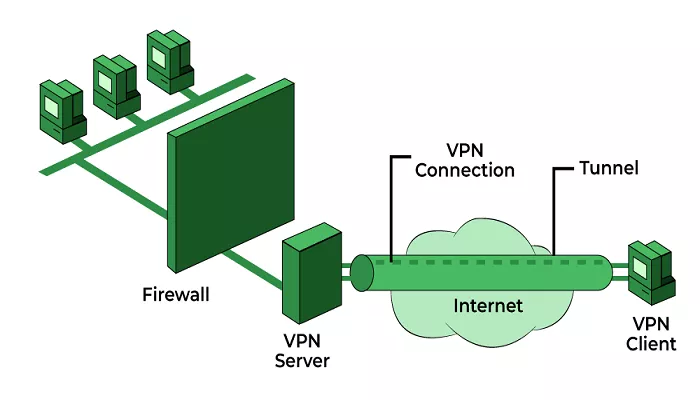In today’s digital age, protecting your online activities is essential. NordVPN is a popular Virtual Private Network (VPN) service that encrypts your internet traffic, ensuring privacy and security. However, many users wonder if using NordVPN alone is sufficient or if they also need a firewall. This article explores the roles of both VPNs and firewalls to help you understand their importance in maintaining a secure online presence.
What is a VPN?
A VPN, like NordVPN, creates a secure tunnel between your device and the internet. It encrypts your data, making it unreadable to anyone who might intercept it. This encryption ensures that your online activities remain private, protecting you from hackers and eavesdroppers. Additionally, VPNs can mask your IP address, allowing you to access content restricted to specific regions.
What is a Firewall?
A firewall acts as a barrier between your device or network and potential threats from the internet. It monitors incoming and outgoing traffic based on predetermined security rules, blocking unauthorized access while permitting legitimate communication. Firewalls can be hardware-based, software-based, or a combination of both, and they play a critical role in defending against malicious attacks.
How NordVPN and Firewalls Work Together
While both NordVPN and firewalls aim to enhance your security, they function differently and address distinct aspects of online protection.
NordVPN’s Built-in Security Features
NordVPN offers several security features that complement the protection provided by firewalls:
- NAT Firewall: Network Address Translation (NAT) firewalls prevent unsolicited inbound traffic from reaching your device. NordVPN utilizes NAT firewalls on its servers to block unwanted connections, adding an extra layer of security.
- Encryption: NordVPN uses advanced encryption standards to secure your data, ensuring that even if intercepted, it remains unreadable.
- Kill Switch: This feature automatically disconnects your device from the internet if the VPN connection drops, preventing unprotected data transmission.
Limitations of NordVPN’s Security Features
Despite these robust features, NordVPN’s protections primarily focus on securing your data during transmission. They do not replace the comprehensive monitoring and control provided by a dedicated firewall. For instance, while NordVPN’s NAT firewall blocks unsolicited inbound traffic, it does not offer granular control over outgoing traffic or monitor for specific threats like malware.
The Importance of Using a Dedicated Firewall
A dedicated firewall provides additional security measures that complement the protections offered by NordVPN:
- Traffic Monitoring and Filtering: Firewalls analyze both incoming and outgoing traffic, allowing you to set rules that block malicious content and prevent unauthorized data transmission.
- Application Control: They can control which applications are allowed to access the internet, reducing the risk of malware communicating with external servers.
- Intrusion Prevention: Firewalls can detect and block intrusion attempts, safeguarding your system from various cyber threats.
Configuring Your Firewall to Work with NordVPN
To ensure seamless operation between NordVPN and your firewall, consider the following steps:
- Add Exceptions: Configure your firewall to allow NordVPN-related processes. For Windows users, this involves adding inbound and outbound rules for NordVPN.exe, nordvpn-service.exe, and openvpn-nordvpn.exe.
- Adjust Antivirus Settings: Some antivirus programs have built-in firewalls that might interfere with VPN connections. Ensure that NordVPN is whitelisted in your antivirus settings to prevent conflicts.
- Check for Updates: Regularly update both your firewall and NordVPN to benefit from the latest security enhancements and compatibility improvements.
Conclusion
While NordVPN provides robust security features that protect your data during transmission, it does not replace the comprehensive protection offered by a dedicated firewall. Firewalls offer granular control over network traffic, monitor for specific threats, and provide intrusion prevention capabilities. Therefore, using both NordVPN and a firewall in tandem ensures a more secure and controlled online experience, addressing different aspects of cybersecurity to keep your data and devices safe.

